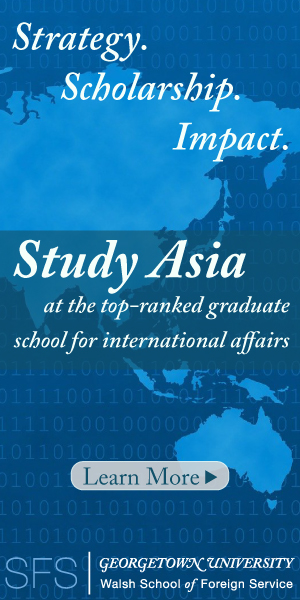| Welcome to the latest issue of Diplomat Brief. This week our top story explores the potential revival of Indian farmers’ protest movement. We also have an interview with Nargis Nehan and Yalda Royan of VOICE, an organization dedicated to eradicating gender-based violence, about life for women in Taliban-ruled Afghanistan. |
| Story of the week |  | Politics 1 Year Since Landmark Victory, Indian Farmers Plan to Revive StirWhat Happened: In November 2020, Indian farmers started a year-long sit-in in Delhi to protest against agricultural reform laws. In 2021, they forced a rare retreat by the Modi government, which repealed the laws and agreed to address the farmers’ other demands, including loan relief, a guaranteed minimum support price (MSP) for all agricultural goods, and a general amnesty for those detained during the protests. Now, a year after their landmark victory, an umbrella organization of farmer advocacy groups known as the SKM is accusing the government of not living up to its promises – and threatening to restart the agitation. Our Focus: “The government has breached its promises... We have to revive the movement,” Hannan Mollah, one of the leading faces of the SKM, told The Diplomat. With a general election looming in 2024, the organization hopes it can successfully wield electoral pressure to get the Modi government to act. There is talk of openly campaigning against the BJP and joining hands with Indian opposition parties if farmers’ demands are not met. What Comes Next: Yet some analysts are not sure the SKM can recapture its previous success. Ajay Gudavarthy, a columnist and associate professor of political science at New Delhi’s Jawaharlal Nehru University, pointed out that “farmers went back to vote for the BJP” in the Uttar Pradesh state assembly election. Without the immediate impetus of the controversial agricultural laws, the SKM may have more difficulty getting farmers to agree on the most pressing problems facing India’s farmers – and the best solutions. Read this story |
| Behind the News | INTERVIEW Yalda RoyanYalda Royan, the Afghanistan Technical Team Lead at VOICE, on the stacked odds facing Afghanistan’s women: “Afghan women are not only fighting against the Taliban. They have to fight against men in their families, U.N. agencies that ignore women, the United States and other countries that facilitated the takeover of the Taliban and continue to engage and support the Taliban.” Read the interview |
| This Week in Asia | Northeast Asia China’s ‘Zero COVID’ ProtestsOn Friday, protests broke out in Shanghai and Beijing decrying strict “zero COVID” policies following a deadly fire in Urumqi, Xinjiang. Over the weekend, protests spread to major cities across China, and expanded to include direct criticisms of the CCP. The authorities are already clamping down, with a wave of arrests and heavy police presence to prevent future gatherings, but the rare synchronized public protests are a telling sign of the depth of public anger toward the government. Find out more | South Asia Nepal’s Election Results Signal More InstabilityResults are coming in from Nepal’s parliamentary election. The ruling Nepali Congress scored the most seats, followed by the CPN-UML – but neither has enough to form a government on its own. Horse trading has already begun to create the next ruling coalition, but if Nepal’s history tells us anything, we should expect whatever alliance is formed to be short-lived. Find out more | Southeast Asia A New PM Takes the Reins in MalaysiaMalaysia’s Anwar Ibrahim has taken his first steps as prime minister following his appointment to the top job by the king on November 24. The former longtime opposition leader has immediately sought to draw a contrast with the corrupt Malay political establishment, refusing to take a salary as PM and announcing that he will downsize his cabinet in order to reduce government expenditures. His first move was to announce measures to tackle the country’s cost-of-living crisis by ordering a review of the country’s elaborate system of subsidies. His next will be the tricky challenge of whom to include in his cabinet. Find out more | Central Asia Kazakhstan in the MiddleKazakh President Kassym-Jomart Tokayev this week traveled to Russia and France for back-to-back state visits. The Kazakh president’s globetrotting highlights the country’s unique geopolitical position as it walks a diplomatic tightrope between Russia and Europe. After each visit, the war in Ukraine was referenced only obliquely in public statements. Astana prefers to highlight its strategic partnerships – including with both Russia and France – rather than the deep divergences between its many partners. Find out more |
| Visualizing APAC |  | Grassroots protests are not uncommon in China, with most involving fewer than 100 people, according to research by China Dissent Monitor. See the full picture |
| Word of the Week | Diplomacy ဗြဟ္မာဦးခေါင်းBhyamah oo-gaung, literally “Brahma’s head,” a Burmese metaphor used to refer to a problem that nobody wants but is duty-bound to hold onto. Find out more |
|  |




